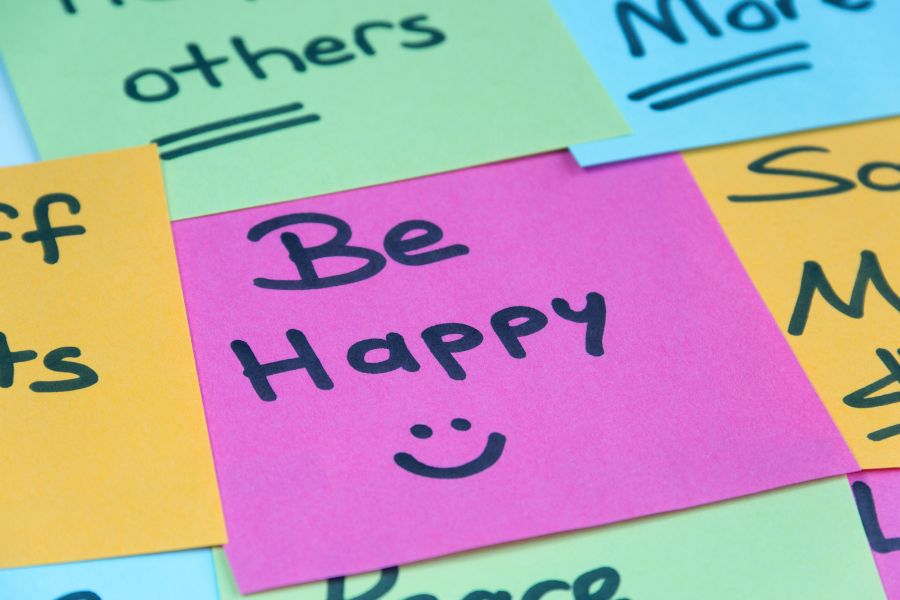- Mar 18, 2025
How to Feel Happier? The Meaning of March 20 Explained
Do you know what International Happiness Day on March 20 is? This is not just an ordinary celebration but a day with profound significance, highlighting the core values of life. Recognized globally, it serves as a reminder of the importance of happiness and balance in sustainable development. But what are the origins of this special day, and how can each of us cultivate more happiness in our lives? Let’s explore with Chus!
1. What Is International Happiness Day?
International Happiness Day, celebrated on March 20, is a special event officially recognized by the United Nations to honor the value of happiness in human life. Initiated by expert Jayme Illien, the day has been observed since 2013 to raise global awareness of the role of happiness in sustainable development.

March 20 was chosen as it coincides with the spring equinox when the sun is positioned directly above the equator, symbolizing universal balance and harmony. This serves as a reminder that happiness is not just a personal goal but a collective responsibility, requiring continuous efforts to create a fairer, more equal, and happier world.
2. The History and Meaning of International Happiness Day
Origins
The history of International Happiness Day traces back to Bhutan, a country that prioritizes the Gross National Happiness (GNH) index over national income. Since the 1970s, Bhutan has emphasized the importance of happiness in sustainable development. This idea spread globally and was officially recognized by the United Nations.

In June 2012, UN Secretary-General Ban Ki-moon declared March 20 as International Happiness Day. This marked a significant commitment to building a happier, more sustainable, and humane society worldwide.
Significance
The significance of International Happiness Day is closely tied to balance and harmony. The equinox, when day and night are equal in length, symbolizes the balance between light and darkness, material and spiritual well-being.
This day conveys the message that happiness is not solely derived from material wealth but also from sustainable development. It also serves as a reminder to work towards a more prosperous and compassionate world for everyone.
3. The Role of the United Nations
The United Nations played a crucial role in officially recognizing March 20 as International Happiness Day. With a mission to promote peace, sustainable development, and an improved quality of life, the UN has positioned happiness as a core element of global progress. This event signifies a major step in encouraging nations to build a more just, harmonious, and prosperous society.

4. The World Happiness Index and Factors Affecting Happiness
4.1. Global Happiness Evaluation Criteria
The World Happiness Report, published by the UN’s Sustainable Development Solutions Network, assesses national happiness levels based on six key criteria:
- GDP per capita – Reflecting income levels and economic prosperity.
- Social support – Measuring the extent to which people feel supported by family, friends, and the community during tough times.
- Life expectancy – An indicator of health and healthcare quality, reflecting the ability to live long and well.
- Freedom to make life choices – Assessing the extent to which individuals feel free to shape their own lives.
- Generosity – Reflecting the willingness to help others within a community.
- Perception of corruption – Evaluating the public's trust in government and business integrity.
Each criterion is scored on a scale of 0 to 10, allowing for comparisons of happiness levels across countries and tracking changes over time.

4.2. The Happiest Countries in the World
According to the 2024 World Happiness Report, Nordic countries continue to top the rankings for the happiest populations.
- Finland ranks first for the seventh consecutive year, thanks to its advanced education system, high income levels, and strong connection with nature.
- Denmark comes in second, known for its high quality of life and comprehensive social services.
- Iceland ranks third, celebrated for its strong sense of community and clean environment.
Other top-ranking countries include Sweden, Israel, the Netherlands, Norway, Luxembourg, Switzerland, and Australia. Notably, Vietnam has risen 11 places from the previous year, ranking 54th, reflecting positive improvements in quality of life.

5. How to Feel Happier?
Happiness is not a destination but a journey, shaped by small daily choices that influence our emotions and mindset. To feel happier, start with these simple yet impactful habits:
- Maintain a healthy lifestyle – A healthy body is the foundation of happiness. Ensure sufficient sleep, a balanced diet, and regular physical activity to stay energized and mentally alert.
- Cultivate positive thinking – Instead of dwelling on negativity, train yourself to view challenges as opportunities for growth and resilience.
- Build meaningful relationships – Happiness is not just about self-fulfillment but also about connections. Spending time with family, friends, and like-minded people enhances your sense of belonging and joy.
- Practice gratitude – Appreciate the small things in life—a warm cup of coffee in the morning, a kind word from a friend—and you’ll realize that happiness is always within reach.

>>> Read more: Happy Hormones, What Are They And How To Increase Them?
Final Thoughts
Happiness is not an abstract concept but a choice and a journey that each person can create for themselves. International Happiness Day on March 20 not only honors this value but also encourages everyone to find joy in life, even in the simplest of actions.
On this special occasion, consider gifting meaningful presents to your loved ones or even yourself to spread happiness. At Chus, you’ll find beautifully crafted handmade gifts that reflect Vietnamese culture and the dedication of local artisans.










